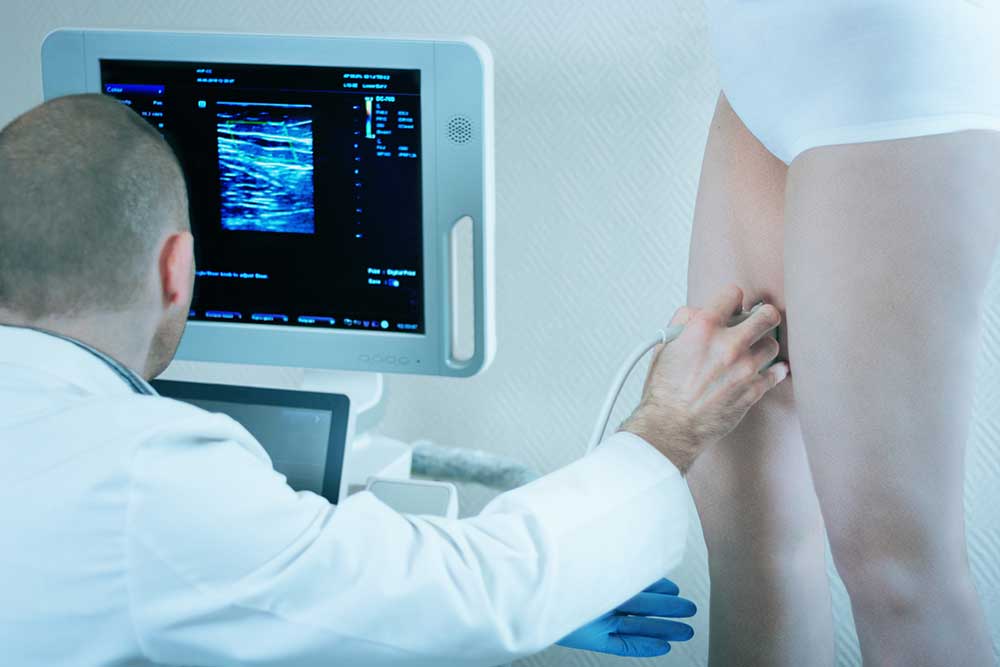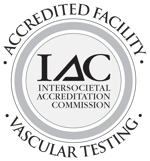With all the state-of-the-art equipment we have and our team of board-certified vascular doctors, our primary focus is to help prevent serious diseases and improve your vascular health.
Along with our doctors, our highly trained registered vascular technologists, can diagnose any disease associated with blockages of the arteries and veins. In this blog post, we will be discussing venous ultrasound studies and how they are used to identify blood clots like Deep Vein Thrombosis (DVT) as well as Chronic Venous Insufficiency which leads to varicose veins.
Venous Studies
The venous study is a noninvasive test that relies on ultrasound (re: sound waves) to produce images of the veins in the body. It is most commonly used to identify blood clots, especially in the veins of the legs. A venous study may also be done to:
- Check signs and symptoms for decreased blood flow in veins in your neck, legs, or arms
- Review procedures you have had done before to restore blood flow to an area
- Assess a vascular dialysis access device (such as an AV fistula in the arm)
Depending on your symptoms and your doctor’s analysis, choosing the right test will help with the right diagnosis.
Venous Duplex Exam
For symptoms such as swelling, leg pain, or suspected blood clots, a venous duplex exam is undertaken to diagnose and provide treatment options for your condition.
Throughout the exam, our licensed vascular technologists will look for the presence of a clot, check the extent of the thrombus, and assess whether your condition is acute or chronic. For chronic cases, the doctor will compare the findings with the previous ones.
After a venous duplex exam, the doctor might suggest the need for anticoagulation for DVT, or surgery for severe symptoms of DVT.
Venous Reflux Study
This study is specifically for the evaluation of varicose veins. Also known as the backward flow test, the venous reflux test is used to tell if the blood is flowing abnormally (backward) in your veins, probably because of poor valves located in the greater saphenous vein.
Conservative measures such as elevation, exercise and compression stockings are generally the first course of treatment. However, if unsuccessful the doctor might recommend other treatment options such as an ablation or microphlebectomy.
Venous Mapping Ultrasound
Before surgery, or if you require enough veins to act as a conduit for either leg bypass surgery or upper extremity AV Fistula surgery, a venous mapping ultrasound is typically conducted to check the quality of the said vein. The test also ensures there are no blood clots or checks whether there is sufficient length for the planned surgery.
Our goal is to ensure the best outcome for your medical issues. By using these noninvasive tests within our IAC accredited vascular lab, we can best determine the issues at hand and provide the best diagnosis for you. By educating you on the different venous studies available, we hope to make you aware of the potential issues that may affect you and help you move towards more preventative measures.
When was the last time you had your vein checkup? Schedule time with one of board-certified vascular doctors today!








.jpg?width=944&name=Castle-Connolly-Top-Doctors-Emblem-Large%20(4).jpg)